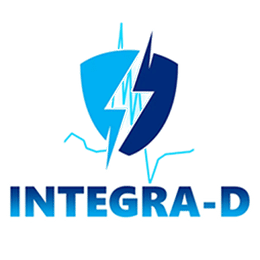INVESTIGATORS
About INTEGRA-D IDE Clinical Trial (Integrating CCM® and ICD)
The INTEGRA-D IDE Clinical Trial is a single-arm, prospective, multicenter study of 300 subjects at approximately 75 sites that will demonstrate that the OPTIMIZER® Integra CCM-DTM System, an implantable cardiac device system that combines CCM® therapy and implantable cardioverter defibrillator (ICD) modules into one device with a battery life of 20 years, can safely and effectively convert induced ventricular fibrillation (VF) and spontaneous ventricular tachycardia/ventricular fibrillation (VT/VF) episodes to sinus rhythm. The CCM-DTM System is indicated for the prevention of sudden cardiac death and improvement of quality of life and 6-minute walk in Stage C or D heart failure patients who remain symptomatic despite being on guideline-directed medical therapy (GDMT) are not indicated for cardiac resynchronization therapy (CRT), and have heart failure with reduced left ventricular ejection fraction (LVEF ≤ 40%).
All consented subjects will undergo screening and baseline testing. All eligible subjects will undergo the implant procedure with the CCM-DTM System. The first 100-127 subjects that are able to be induced into VF “on the table” will undergo defibrillation efficacy (DE) testing. For those subjects that cannot be induced into VF or do not successfully complete DE testing, the CCM-DTM IPG will be explanted, and the CCM (pacing) lead may be removed. Further treatment options (i.e., abandoning the ICD implantation procedure or implantation of another commercially available system) will be left to the operator’s discretion.
After the DE testing phase, up to 25% of the subsequent subjects enrolled may have a pulse generator exchange as the index procedure if the in situ ICD is a single chamber (ventricular only) system and requires replacement. The in situ ICD lead must be a “dedicated bipolar” defibrillator lead with a DF-4 connector, active fixation, electrically active helix, and coated with titanium nitride or iridium oxide. Subjects that require an ICD lead replacement at the time of IPG change are always excluded from this study.
Each subject will be followed for two years after receiving the CCM-DTM System.
Primary Efficacy Objective
Evaluate the device effectiveness in converting induced VF at time of implantation in the first 100-127 patients.
Primary Safety Objective
Evaluate device-related complications through 6-months (excluding lead-related complications) in all patients.
Secondary Safety Objective
Evaluate the incidence of inappropriate ICD shocks through the time when the last subject enrolled completes the 6-month visit in all patients.
- Patient is aged 18 years or older;
- Patient meets the Stage C or D criteria of the Universal Definition of Heart Failure;
NOTE: Stage C or D criteria of the Universal Definition of Heart Failure include symptoms and or signs caused by a structural and/or functional cardiac abnormality (as determined by an EF of <50%, abnormal cardiac chamber enlargement, E/E’ of >15, moderate/severe ventricular hypertrophy or moderate/severe valvular obstructive or regurgitant lesion) and corroborated by at least one of the following:
i. Elevated natriuretic peptide levels:
| Ambulatory | Hospitalized/Decompensated | |
| BNP, pg/mL | ≥35 | ≥100 |
| NT-proBNP, pg/mL | ≥125 | ≥300 |
ii. Objective evidence of cardiogenic pulmonary or systemic congestion by diagnostic modalities, such as imaging (e.g., by chest radiograph or elevated filling pressures by echocardiography) or hemodynamic measurement (e.g., right heart catheterization, pulmonary artery catheter) at rest or with provocation (e.g., exercise).
- Patient has HFrEF (LVEF ≤40%);
- Patient is on GDMT for heart failure;
- Patient has a Class I or Class II indication for an ICD
- Patient has a reasonable expectation of meaningful survival of > 1 year;
- Patient has either non-ischemic cardiomyopathy or ischemic cardiomyopathy and is at least 40 days post-myocardial infarction (MI), if an MI occurred;
- Patient is willing to give informed consent, available for scheduled study follow-up visits, and able to complete all testing described in the study protocol at the investigational site location.
- Patients should not have severe aortic insufficiency (AI) or aortic stenosis (AS), and should not have mitral stenosis (MS); additionally, patients undergoing DE testing should not have severe mitral regurgitation (MR);
- Patients who have undergone mitral valve repair or clip within 90 days prior to study consent;
- Cardiac surgery within 90 days or a percutaneous coronary intervention (PCI) procedure within 30 days prior to study consent;
- Prior heart transplant or ventricular assist device;
- Implanted mechanical tricuspid valve;
- PR interval greater than 375ms or advanced AV block;
- In situ S-ICD, pacemaker, or CRT device;
- Indicated for CRT;
- End stage renal disease, currently on dialysis, or with other major medical disorder (e.g. liver failure, terminal cancer);
- Indicated for permanent bradyarrhythmia pacing;
- Unstable angina pectoris within 30 days prior to study consent;
- Pregnant or planning to become pregnant during the study;
- Participating in another cardiac investigational device or drug study at the same time (or within 30 days prior to study consent);
Note: Registries and other observational studies are acceptable.
- Other criteria that preclude OPTIMIZER® Integra CCM-DTM implantation and/or CCM® therapy, as determined by Investigator.

© 2025 Impulse Dynamics Terms of Use | Data Protection | Vulnerability Disclosure | Terms and Conditions | Privacy Policy
